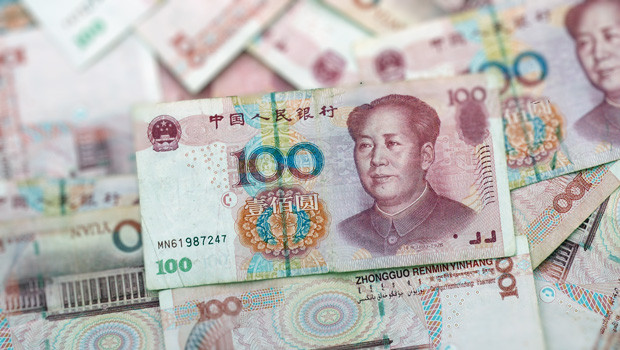Asia report: Markets mixed as Beijing keeps rates on hold

Markets in the Asia-Pacific region finished with a mixed performance on Monday, as China adhered to market expectations by keeping its loan prime rates unchanged.
Patrick Munnelly, market analyst at TickMill, noted that Chinese stocks weakened despite last week's record levels on Wall Street.
“The Nikkei 225 rallied and broke above the 36,500 handle ahead of tomorrow's Bank of Japan announcement.
“The Hang Seng and Shanghai Composite underperformed due to notable weakness in tech and property, with the Hang Seng Mainland Properties Index hitting a record low and trading back to levels not seen since 2009.
“Sentiment remained pressured in the mainland amid ongoing economic concerns, and the benchmark loan prime rates were kept unchanged, as expected.”
Munnelly said Japan’s central bank was expected to maintain its current monetary policy this week, but added that investors were watching for any indications from governor Kazuo Ueda regarding the negative effects of negative rates, as that could signal a future change in policy.
“Additionally, Tokyo's consumer price index is likely to have decreased in January, which could further undermine the BoJ's confidence in achieving its 2% inflation target.”
Most markets in Asia fall on mixed day for region
In Japan, the Nikkei 225 index rose by 1.62% to reach 36,546.95 points, while the Topix index gained 1.39% to close at 2,544.92.
Leading the gainers on Tokyo’s benchmark were Yamaha Motor Co, up 6.26%; Dainippon Screen Manufacturing, which rose 5.03%; and Toppan Printing, ahead 4.23%.
However, in China, both the Shanghai Composite and Shenzhen Component experienced declines, with the former dropping by 2.68% to 2,756.34 points and the latter falling by 3.5% to 8,479.55 points.
Beijing Tianyishangjia New Material and Guangdong Champion Asia Electronics led the losses in Shanghai, with falls of 11.65% and 10.02%, respectively.
Hong Kong's Hang Seng Index also faced a downturn, declining by 2.27% to close at 14,961.18 points.
Major losers included China Resources Land, down 11.06%; Longfor Properties, which lost 10.51%; and JD Health International, which was off 6.83%.
South Korea's Kospi index experienced a more modest decline, dropping by 0.34% to 2,464.35 points.
Notable decliners in Seoul included EcoPro Materials and Kumyang, which were down 10.76% and 7.57%, respectively.
On a more positive note, Australia's S&P/ASX 200 index saw a gain of 0.75%, closing at 7,476.60 points, led higher by the A2 Milk Company, which added 6.25%, and IDP Education, which rose 5.05%.
New Zealand's S&P/NZX 50 index also recorded a slight increase of 0.16% to reach 11,684.95 points.
The A2 Milk Company was also in the green in Wellington, rising 5.6%, while Restaurant Brands New Zealand followed closely behind with a gain of 3.9%.
In currency markets, the dollar was last down 0.08% on the yen to trade at JPY 148.00, while it strengthened 0.11% against the Aussie to AUD 1.5175, and weakened 0.05% on the Kiwi to change hands at NZD 1.6349.
On the oil front, Brent crude futures were last up 0.27% on ICE at $78.77 per barrel, and the NYMEX quote for West Texas Intermediate increased 0.11% to $73.49.
China keeps rates on hold, Malaysia inflation unchanged
In economic news, the People's Bank of China decided to keep its benchmark lending rates unchanged during its monthly fixing.
The move was in line with market expectations, as Beijing was seen to have limited room for monetary easing due to prevailing downward pressure on renminbi.
The decision came after the PBoC’s surprise last week when it opted to maintain its medium-term lending facility rate at its existing level.
“China is relying on fiscal policy to support growth this year, as it pursues an industrial restructuring strategy towards advanced manufacturing and away from over-reliance on the property sector,” said Duncan Wrigley at Pantheon Macroeconomics.
“Still, a lending rate cut to boost private sector confidence is likely in the first quarter, following a coordinated round of deposit rate cuts by state-owned banks in December.
“Policymakers have signalled repeatedly that China will not resort to a credit-fuelled mega-stimulus this time.”
In Malaysia, the consumer price index for December showed a year-on-year increase of 1.5%, which remained unchanged from the November figure.
The outcome aligned with the expectations of economists surveyed by Reuters.
Reporting by Josh White for Sharecast.com.